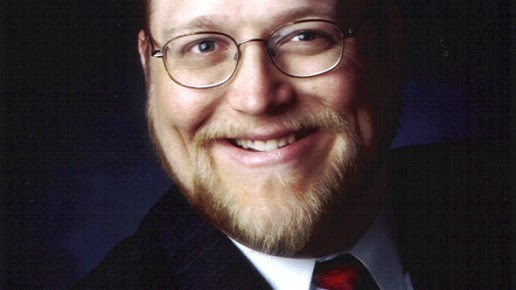Once upon a time, boys and girls, we had a computer. In my case, it was an Apple IIc with a floppy drive and 128k of internal memory. It was a large and bulky thing with a lot of wires and a heavy green-screen CRT monitor and stuff, and even though it had carry handles and was billed as “portable,” we left it on a desk at home. If we wanted to do something on the computer, we had to go home to that desk. When we wanted to show what we were working on to someone else, we either printed it out or copied it to a floppy disk and prayed that the person we were sharing it with had the same kind of computer with the same version of software. If they didn’t, we were out of luck.
Fast forward 30 years. Today, I am no longer tied to a single device. The internet has become my “PC” – Personal Cloud. I have two laptops, a chromebook, two tablets and a mobile phone. They all access my data real-time through the internet, so synchronization is not an issue. My email, contacts, calendar, documents and music are all online. Regardless of what device I’m on, or even if I own the device, I can securely access my data to get the job done. The software is a service in my cloud, so I don’t need to install a program on a local device. As long as I can get a browser and onto the internet, I have everything I need. Jumping between devices isn’t an issue when the contact I saved on my phone is automatically available on any device I use to access the internet. My family is the same way, so we can share a device and the customization is done online for us.
One efficiency tip I’ve heard over and over through the years is you shouldn’t maintain multiple calendars. Everything should be visible at once. With Google Calendar, I can see a combined view of multiple private and public calendars, and give people access to mine. Iif I schedule something on my calendar, it is automatically available to my family. Group calendars, such as for Boy Scouts or the Marching Band, are included in my view so I know how many conflicting events I have. When someone asks if I’m free on a given day, I no longer have to tell them I’ll check with the paper calendar at home and get back to them. My calendar rides in the cloud.
I review and edit papers with my college daughter on Google Docs. She writes the paper and adds comments and questions, then sends me the link. I can see her paper and we can even interact real-time within the document. After I make suggestions and comments, I can watch her make the edits. I do the same thing with organization meeting agendas. People on the list can add to the collaborative agenda throughout the month so we don’t have to remember to bring something up. This was nearly impossible before the cloud.
I’ve nearly gone paperless at work. I take notes on my tablet using Evernote and can access them on any device anywhere. The tablet is smaller, lighter and more portable; the battery lasts all day. The tablet is large enough that typing isn’t an issue, and the autoprompt and autocorrect can actually increase your speed once you get used to it. One of my favorite advantages the tablet has over paper is the ability to take a photo of the white board we’ve been brainstorming on directly into my notes. When I’m back at my desk, I can review the notes online and sort by tags or do a full-text search through hundreds of notes to find the information I’m looking for. When I’m away from my desk, all of my notes are always with me, either through my laptop, tablet or phone, or even someone else’s computer. Try doing that with paper.
The only reason I switch between devices now is for convenience (laptops are easier to type large blocks of text, tablets for watching movies, etc.) or for a tool that hasn’t been ported to the Internet. I’m starting to resent applications like Axure that require a dedicated installation at one device. In the cloud, I don’t have to worry about whether my software is up to date, or if my version is compatible with yours. The cloud updates for all of us. I also have not run into a cloud-based application that costs more than $10. $600 for Office? When Google Docs is free? Sure, it does things I can’t do in Google Docs, but the price difference has caused me to rethink a lot of application loyalties.
To be fair, the risk online is greater. Servers could be hacked, the system can go down, the cloud is outside my control. If I don’t have access to a wireless network, I have to work tethered to my phone. If I don’t have a 3G connection on my phone, I’m out of luck. But really, if I am that remote, I don’t really need to be on my devices. The risks have to be weighed against the convenience and capabilities, and for me, that decision is easy.
The cloud is where I live, and where everyone will live in the future. The cloud democratizes computing, in that everyone has access to the power and reach of the Internet. The cloud allows for faster and greater collaboration and sharing and connects us as never before.
